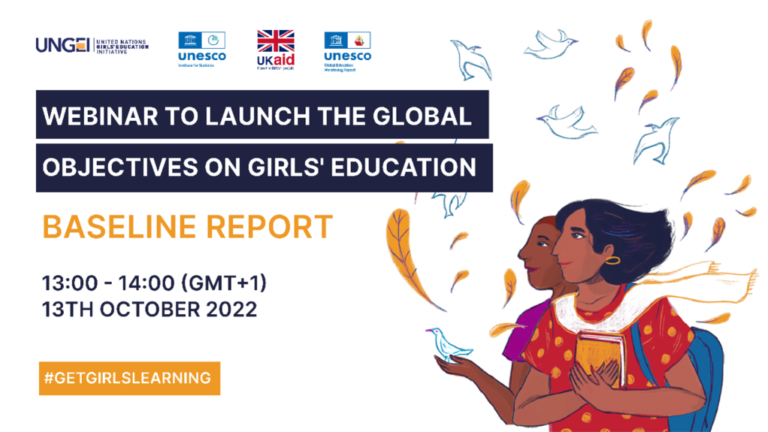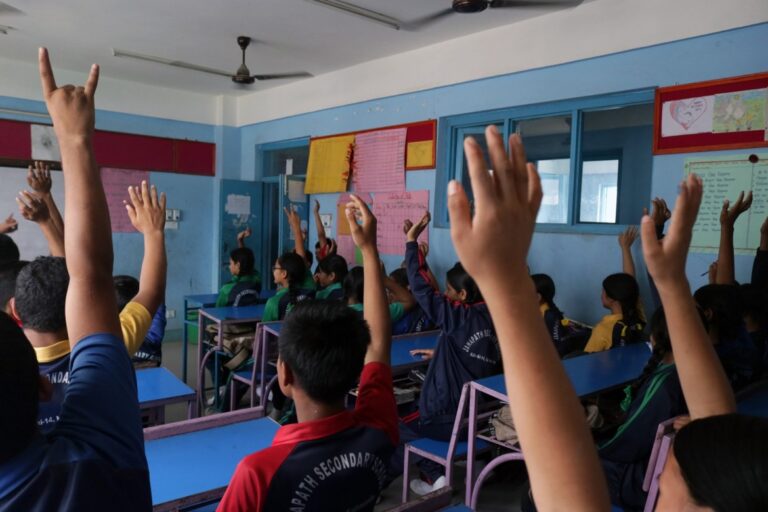By Radhika Iyengar, Gita Johar, Lucia del Pilar Haro and Sarah Montgomery
The idea of community members providing basic health services to local households has been in existence for 50 years. The health community has been effectively using Community Health Workers (CHW’s) to address the shortage of health staff in local clinics for many years. CHWs have been rolled out in large numbers in developing countries. They play a key role in preventing, diagnosing and providing recommendations of ailments from diarrhea to HIV/AIDS. The concept is now scaled up with millions of CHWs visiting households in under-served villages today.
The education community has also been experimenting with the idea of using local volunteers for more than two decades. Local volunteers in education have run community based libraries, taught homework classes, provided afternoon remedial classes, helped teachers in school and conducted surveys for out of school children during enrollment campaigns. These community volunteer programs are highly contextualized to address local needs but, unlike in the case of health, their scale has usually been small. However, the education needs have gown substantially.
Picture this: a familiar young face in the community is excited to change things in his village. He surveys all the hamlets in his village and jots down names of all children, especially girls who are currently out of school. He knows all the households in the village and knows the children by name. The parents and community leaders trust him and take his recommendation to enroll their children in school and to work towards improving schools. He also helps the schoolteachers to ensure that all children are learning at least basic language and mathematics skills. Can this very localized and personalized model be scaled up?

Parents engagement before the enrollment process in Gogunda, Rajasthan
Educate Girls is a Mumbai based non-profit organization that is using community-based volunteers called Team Balikas to address girls’ absenteeism in rural Rajasthan and Madhya Pradesh. Their mission is to leverage existing community and government resources to ensure that all girls are in school and learning well.
“People trust me, come and ask me to get their child admitted in school. I explain to them that they don’t need to spend any money, that if they have any problems with paperwork, we will help them out.” Female Team Balika, Gogunda, 17 years old
A research team at Columbia University, conducted field based research last summer to understand the key operation principles of Team Balikas. Since these volunteers are not given monetary incentives, the research team was interested in understanding what the motivations and incentives are that attract and retain highly engaged community education volunteers. To find the answer to our question we conducted multiple focus groups discussions, in-depth interviews and surveys in two districts (Jalore and Udaipur) in Rajasthan, India.
The findings show that there were three main motivators for the volunteers to participate in the Team Balika program:
- Career: Volunteers were motivated to gain practical experience for a future job.
- Values: Volunteers adhere to the purpose of Educate Girls’ and are motivated by the opportunity to contribute to the development of their community and address the inequality between boys and girls.
- Enhancement: Volunteers feel more confident to speak in public and enjoy interacting with community members and other Team Balikas members. They feel respected by their communities and proud when people praise them.
But not everything is nice and easy. The findings show that, apart from not getting any monetary incentives, the working conditions for the volunteers are not conducive most of the times. The work can become physically taxing especially in the summer season. Women volunteers have the hardest time. They sometimes face disapproving remarks from their relatives as women are supposed to be at home. This leads to gossip from their community. Security also becomes an issue. Expenses add up with travel for trainings.
What can Educate Girls do to retain the volunteers and keep up their motivation?The research suggested that the top 5 incentives that the program can provide to the volunteers include:
-
- Career guidance
- Potential career at Educate Girls
- Continued activities that increase their confidence
- Periodical training
- Stronger sense of being part of a team by meetings and branded items
The research suggested two key pieces that tie everything together. First, it is important that the volunteer program has a structure where volunteers can clearly identify the benefits of volunteering and are held accountable for the responsibilities they have based on this.
Second, the leadership skills of those people that have direct contact with volunteers (Field Coordinators) is vital for engagement in the program. Constant communication between the volunteers and the organization is key to keep volunteers engaged and motivated.
Having women volunteers is still a challenge, especially in rural India, but having a structured program and the correct incentives will also help to communicate with parents and other members of the community.
Could this model provide both the local and large scale solutions to improving enrolment and learning? Time will tell. For now, Educate Girls is going strong with their 11,000 strong army of community-based education volunteers.






